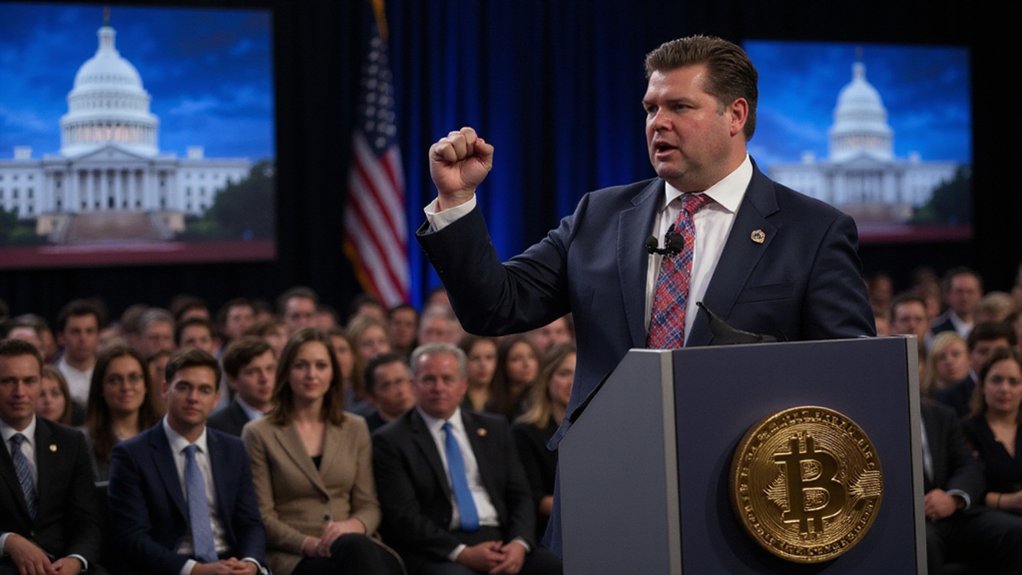Why has the intersection of cryptocurrency and politics become the new battleground for America’s digital future? JD Vance’s address at Bitcoin 2025 provides a compelling answer: nation-states are now scrambling to position themselves in what amounts to a global Bitcoin arms race, with macroeconomic and geopolitical implications that extend far beyond mere technological novelty.
Vance’s clarion call to the crypto community—urging engagement beyond the comfort zone of technological development—represents a significant pivot in political discourse. “Politics will not ignore you, even if you ignore politics,” he cautioned a room of Bitcoin enthusiasts, many of whom have historically maintained libertarian skepticism toward government involvement.
The strategic importance of cryptocurrency in geopolitical competition formed the cornerstone of Vance’s argument. He positioned Bitcoin as not merely a speculative asset but a strategic resource that nation-states (including, apparently, the United States under the Trump administration) must secure to maintain competitive advantage in the evolving landscape of digital finance.
What’s particularly striking is the administration’s dramatic reversal on crypto policy—from Trump’s previous skepticism to his current embrace of a Bitcoin strategic reserve and crypto advisory council. This volte-face suggests a pragmatic recognition of cryptocurrency’s inexorable momentum rather than ideological conviction.
Vance’s emphasis on regulatory clarity stands in stark contrast to the current patchwork approach. He articulated a vision where American leadership in crypto innovation depends on coherent policy frameworks that other nations, including India, are beginning to emulate as they reconsider their positions.
The most salient aspect of Vance’s address was his framing of the crypto community as a potentially formidable political bloc—one that must translate its technological savvy into legislative influence. His message of empowerment came with a corollary of responsibility: the future of this transformational technology depends not just on code but on Capitol Hill, where the rules governing its adoption will ultimately be written.
This political repositioning comes at a time when institutional adoption is accelerating rapidly, with major financial entities establishing significant positions in Bitcoin and related digital assets.









